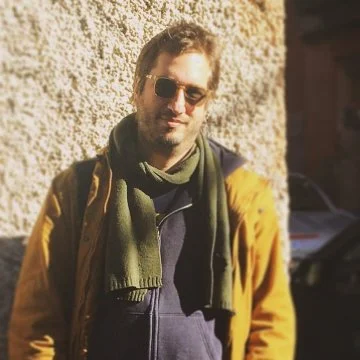NOW PLAYING: Péter Lichter THE GENEVA MECHANISM: A GHOST MOVIE
/In August 2025, GME announced its move towards focusing on the distribution of film titles from our library as digital files. As the educational film market has shifted from 16mm film distribution to DVD and Blu-ray editions, and most recently streaming, the contours of film history are being radically reshaped. Well-known films are now re-released in new, high-quality digital transfers by film archives and boutique publishers, and lesser-known films from the course of moving image history are made available for the first time in digital formats. In March 2020, with the rise of Covid-19 and the shift to remote teaching, the demand for server-based digital media over disk distribution has grown exponentially, and librarians have been tasked with rethinking the physical moving image format for their teaching programs.
In recognition of these technological changes — from celluloid to video to digital and beyond — GME presents Péter Lichter’s timely and fascinating short film THE GENEVA MECHANISM: A GHOST MOVIE in the Adrienne Mancia Streaming Room this month.
In THE GENEVA MECHANISM, the ghosts of celluloid return to haunt the digital space. As noted by the International Documentary Film Festival of Amsterdam: “One of the basic mechanisms enabling the projection of films, which the audience then perceives as a sequence of moving images, is the object of representation here — through its mechanical parts and the demonstration of its operation — in a collage of images reprinted in a digital stream.” Olaf Möller, writing for the International Film Festival of Rotterdam, echoed: “The Geneva mechanism is the essence of all cinema: a gear that translates a continuous rotation movement into intermittent rotary motion. Here, historical footage of this gear, along with the act and art of film projection, is digitally dissolved, sometimes into a shapeless mess. A very nostalgia-free film about the end of an era.”
In essence, Lichter’s film distills the evolution of the filmic medium into a visually-engaging three-minute short wherein celluloid and digital filmmaking are collapsed into the same abstract field. Lichter himself remarked:
In this film, I continued to play with the hybrid form I had experimented with in my previous work, THE GREY MACHINE. I wanted to see what visual effects and qualities would be created if I further duplicate[d] the digital version of the analogue image. The resulting uncanny post-digital (and post-analogue) image opened up exciting directions, giving rise to new possibilities in the realization of hauntological aesthetics.
WRITER AND FILMMAKER Péter Lichter.
Péter Lichter is a Hungarian experimental filmmaker and writer. He studied film history and film theory at the ELTE University, Budapest. Beginning in 2002, Lichter has made a series found footage films and experimental features. His work has screened at such festivals and venues as Berlin Critics' Week, IFFR (International Film Festival of Rotterdam), Tribeca Film Festival, Jihlava IDFF, Tallinn Black Nights Film Festival, Torino Film Festival, goEast, Cottbus Film Festival, EXiS, CROSSROADS, VideoEX, Festival of (In)appropriation, Antimatter, La Cinémathèque Française, and The Kitchen. He is also one of the editors of the Prizma film periodical. Lichter’s first book on experimental cinema (A láthatatlan birodalom / The Invisible Impire) was published in 2016. Since then, he has written nine books on film history.


